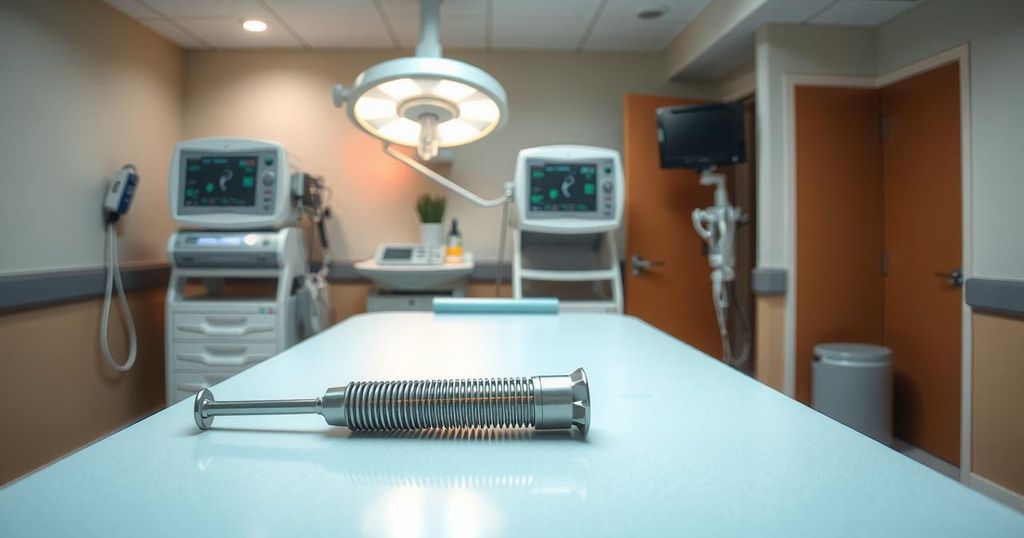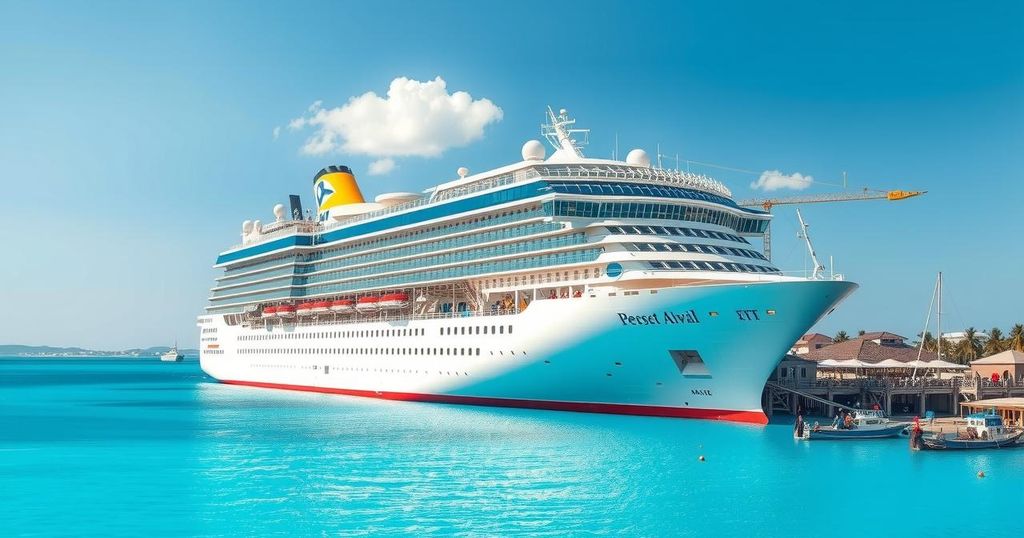Life-Saving Procedure for Madagascar Elderly at Mumbai Hospital
A senior citizen from Madagascar, Firdoche Houssen, underwent a life-saving minimally invasive stent procedure at Masina Hospital in Mumbai for an aortic aneurysm caused by chronic smoking. Facing severe abdominal pain, his family sought treatment in India after inadequate care in Madagascar. The procedure was successful, and Mr. Houssen expressed gratitude for the timely intervention.
In Mumbai, a senior citizen from Madagascar, Mr. Firdoche Houssen, recently underwent a life-saving stent procedure after being diagnosed with a dangerous abdominal aortic aneurysm. This condition, exacerbated by chronic smoking, emerged following a simple fall from his bed. Despite enduring two months of severe abdominal pain, Mr. Houssen found himself without access to advanced medical care in Madagascar, prompting his family to seek treatment in India.
Upon arrival in India, medical professionals confirmed his diagnosis of abdominal aortic aneurysm, characterized by a weakened bulge in the aorta. To address this critical situation, doctors performed a minimally invasive stent graft procedure, allowing for swift correction of the aneurysm and relief from pain, thus facilitating a quick recovery for the patient.
The risk factors for an aortic aneurysm include high blood pressure, smoking, genetics, and atherosclerosis, which leads to artery complications. Symptoms often remain absent until the condition becomes severe, making diagnosis challenging. Common indicators include intense abdominal or back pain, and ruptures of aneurysms can result in fatal outcomes.
The stent graft procedure entailed the insertion of a small device through the artery to counteract the aneurysm without necessitating open surgery. This technique promotes proper blood flow, mitigates the risk of rupture, and minimizes the potential for complications and blood loss. Following a successful two-hour procedure, Mr. Houssen was discharged just three days later.
Dr. Ashank Bansal, a vascular interventional radiologist at Masina Hospital, emphasized the significance of timely intervention, stating that Mr. Houssen’s smoking history likely contributed to his condition. The innovative nature of the stent graft procedure allowed for accurate placement without jeopardizing surrounding renal arteries, thus avoiding the risks associated with traditional open surgery.
Fatema Firdos Djaver, Mr. Houssen’s daughter, expressed her family’s relief and gratitude, noting their decision to pursue treatment in India was pivotal. She remarked, “My father endured two months of suffering, and doctors in Madagascar advised seeking advanced treatment in India or Reunion. We chose India, and meeting Dr. Ashank Bansal and Dr. Zainulabedin Hamdulay became a turning point in our journey. The procedure was quick, and his recovery exceeded our expectations. My father is doing well, and we are deeply grateful.”
The case of Mr. Firdoche Houssen highlights the critical role that timely medical intervention can play in treating life-threatening conditions such as an abdominal aortic aneurysm. The employment of minimally invasive procedures, such as the stent graft technique, has proven effective in alleviating pain and enhancing recovery. Moreover, this instance underscores the profound impact of chronic smoking on health and the necessity for individuals to seek advanced medical care when facing serious health challenges in less equipped regions.
Original Source: www.freepressjournal.in




Post Comment